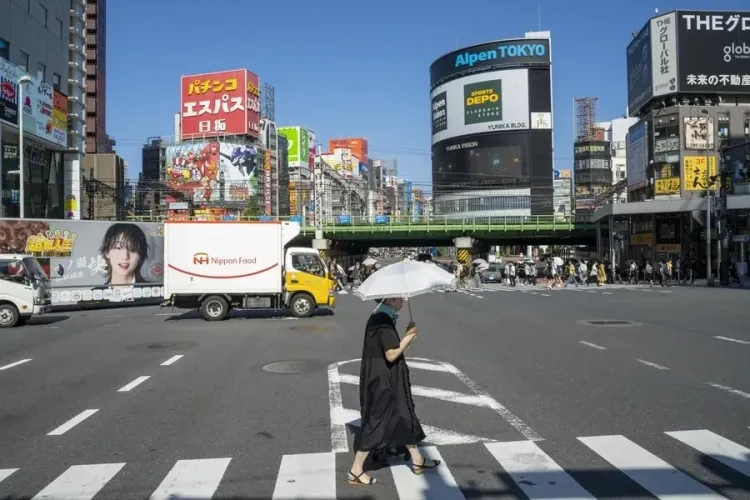Is Japan Facing Its Hottest July Yet for the Third Consecutive Year?

Synopsis
Key Takeaways
- Japan faced its hottest July on record with a temperature increase of 2.89 degrees Celsius.
- Record temperatures were observed in Tamba City at 41.2 degrees Celsius.
- The unusual heat is attributed to a high-pressure system.
- Officials issued heatstroke alerts nationwide.
- Rainfall levels were the lowest since 1946 in certain regions.
Tokyo, Aug 2 (NationPress) Japan has recorded its hottest July for the third consecutive year, with temperatures soaring 2.89 degrees Celsius above the average, as reported by the nation's weather agency. The average temperature nationwide was the highest recorded for July since records began in 1898, surpassing the previous record set in 2024 by 2.16 degrees Celsius, according to the Japan Meteorological Agency (JMA) on Friday.
Officials noted that this year's temperature deviation is significantly greater than in previous years, labeling the situation as one of “abnormally high” temperatures.
On July 30, the mercury hit an unprecedented 41.2 degrees Celsius in Tamba City located in the western prefecture of Hyogo, marking the highest temperature ever recorded in Japan.
Moreover, on July 24, temperatures approached 40 degrees Celsius in certain areas of the northern Hokkaido prefecture, as reported by Xinhua news agency.
In addition, rainfall in July along the Sea of Japan side of the northeastern Tohoku region and in the central Hokuriku region was the lowest recorded since 1946, according to the JMA.
On July 25, the JMA warned that the oppressive heat would persist across Japan, with heatstroke alerts issued for much of the nation.
The ongoing extreme temperatures pose life-threatening risks, the JMA cautioned, attributing the heatwave to a high-pressure system enveloping Japan.
Heatstroke alerts were issued nationwide, including areas such as Hokkaido, Tochigi, Gunma, Saitama, Hiroshima, Nagasaki, and Tokyo, which all experienced record-high temperatures.
Daytime highs are projected to reach 39 degrees Celsius in Toyooka City, Hyogo prefecture, and 38 degrees Celsius in Ichinoseki City, Iwate prefecture, as well as in the cities of Fukushima, Maebashi, Kumagaya, Kyoto, and Maizuru, according to the weather agency.
Weather officials have also urged the public to take necessary precautions to prevent heatstroke.









